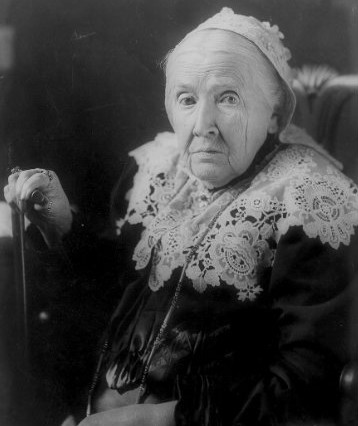With a victor’s palm;
Life’s receding billow
Leaves eternal calm. At the feet Almighty
Lay this gift sincere;
Of a purpose weighty,
And a record clear. With deliverance freighted
Was this passive hand,
And this heart, high-fated,
Would with love command. Let him rest serenely
In a Nation’s care,
Where her waters queenly
Make the West most fair. In the greenest meadow
That the prairies show,
Let his marble’s shadow
Give all men to know: “Our First Hero, living,
Made his country free;
Heed the Second’s giving,
Death for Liberty.”
Return to The Meaning of Abraham Lincoln’s Birthday.



Post a Comment